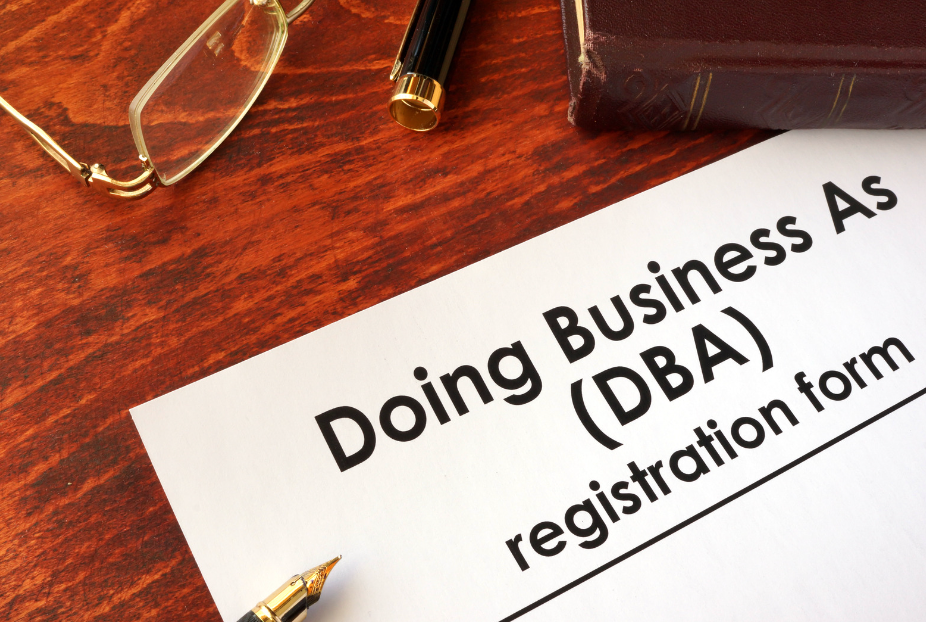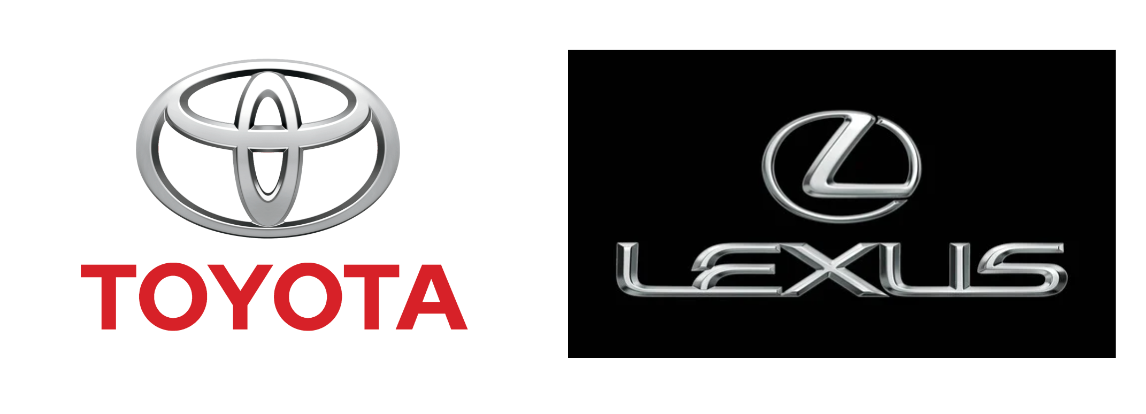Creator vs. Influencer vs. Personal Brand Names and …
Brand Names vs. Trade Names vs. Trademarks: What’s the Difference in a Legal Business Name?
There is a lot of confusion around what does protecting your name even mean.
Part of the confusion is due to what kind of name you are talking about.
The Six Types of Names That Create The Most Confusion
So let’s first talk about the different kinds of names and how you might evolve from one type to another over time.
Let’s say you love dogs-especially puppies! They are just so cute and fun to watch. I still remember our dog, a Husky/German shepherd mix, when he was little. His paws grew faster than the rest of his body and he wasn’t very coordinated. He would run after us and when we made a sharp turn he often couldn’t make it and would end up rolling over, barking happily at how much fun it was.
So anyway, back to your love of puppies …

Your Creator Name
You start taking videos of pups while at the park. You post them online and write little stories about what you see. You even start a local community for puppy owners to share their videos and stories. You curate content just because you’re passionate about these amazing little creatures that add joy to everyone’s life. And before you know it you’re a Creator, creating content just because it gives you pleasure and you want to share what you enjoy with others. Your Creator name may be your personal name or a handle / nickname you use on social media.

Your Influencer Name
Guess what happens next? Others share your passion and are amused by your videos and your knowledge of puppies. Before you know it, you have hundreds or thousands of followers. And some of those followers are asking you for advice. What is the best food for puppies? How should they teach their puppy to sit or fetch on command? And as you respond to their requests you realize you’ve become an Influencer and may want to monetize your community with inexpensive courses, local pet training camps and more. Local pet stores approach you to see if you would feature them in one of your videos and they want to pay you if you’ll do it.

Your Personal Brand Name
Your casual Influencer name is growing into a professional Influencer and Personal Brand name. You spend more time researching content before you release it. You bring in a couple of others to help you post more content across more platforms. You start getting invitations to speak and find the number of your followers and subscribers has increased dramatically. You realize this is becoming a big money making business and as a savvy business owner you want to protect your personal brand name or come up with an official name.

Your Company Trade or Business Name
So you decide to fill out the business paperwork to register your official name as your DBA (doing business as or legal business name) or as your company name in your county or can register trade names with your secretary of state.
While your new DBA registration typically keeps someone else from registering exactly the same name as their company name, it actually affords you very little protection. That is, if your company name was We Luv Puppies, LLC (limited liability company) some else might be able to register a separate registration with a confusingly similar name like We All Love Puppies, Inc.
Trade Name Registration Does Not Protect Your Brand Name As a Trademark

Protecting Your Brand Name With Trademark Registration
As you grow, you realize that a lot of your followers are now outside your state! And they want to subscribe to some of your educational videos, paying you money for the privilege. So you decide register your name as a trademark with the USPTO in Washington, DC. A trademark is the brand name under which you sell stuff … whether that is a subscription to your educational content, a new puppy treat or collar you’ve developed for potential customers, or even in-person puppy training sessions you provide.
More about Brand Names, Trade Names and Trademarks
You probably now see that names serve many functions.
Your Creator Name is just probably your own personal name with no real plans to do anything with it other than post content about something you love.
But as you grow, some of your followers become customers and start associating your personal name with your business name. And now you need to start thinking about what to name your new company and how to protect your brand.
Brand names, trade names, and trademarks refer to the roles or specific purposes your name is serving. Here’s a rundown of the differences between these terms and what they mean for your business.

Brand Names
You might ask, aren’t brand names the same as company names? Yes — except when they’re not. While a brand name can refer to your company brand, it could also describe a product, service, or subsidiary. Company names most often refer to the overarching organization that manufactures products or offers services, while brand names are the name under which you sell your products and services.
For example, Toyota Motor Corporation uses its company name as part of the brand name for many of its models, like the Toyota Corolla and the Toyota Camry. However, Toyota Motor Corporation also owns Lexus, but Lexus owners would likely be incensed if you referred to their new ride as a “Toyota Lexus IS.”
You can think of your brand name as the name (or collection of names) you use to present your companies, products, or services to the public.

Trade Name vs Brand Name
So what about a trade name? Is that the same as a company name? Again, the answer is yes — sometimes. As already discussed, a trade name is frequently referred to as a “doing business as” (DBA) name, which is probably a better descriptor for it. It is, quite literally, the name you use in trade, such as your company name seen in your advertisements, formal communications, and official documents.
Trade names are usually the first step businesses take when establishing themselves, and they’re most often used to help tax collection agencies distinguish between businesses. Trade names don’t really provide much legal protection for your business, so you might see multiple businesses using very similar trade names.
There are cases where trade names might differ from registered business names, however. For example, General Electric often uses “GE” as its corporate moniker in its advertising, but its official company name is General Electric Company.

Trademark Protection
Here’s where things get tricky. Just because you’re using a company or brand name doesn’t necessarily mean you have exclusive rights or it’s really yours — at least not where the law is concerned. That’s where trade names vs trademarks are important to distinguish.
Trademarks provide legal protection to businesses for the use of names, logos, and symbols. It doesn’t matter if you’ve applied for an EIN (Employer Identification Number) under a trade name or if you’ve been using the business name for 20 years. If you haven’t registered your name as a trademark and another company in a similar market used it in commerce first, they could potentially sue you for trademark infringement. That’s true even if the names aren’t an exact match but just phonetically similar (they sound similar, regardless of how they are spelled). (Sidenote: Some people confuse trademarks with domain names – see here how they differ.)
Trademarking a name — whether it’s a brand name or a company name — ensures that you have the trademark rights to use that name in your space. That way, another company can’t swoop in and profit off your reputation with a confusingly similar name.

Making Sure You’re Legally Protected
If you take anything away from this post, it should be this: just naming your company or product does not necessarily give you legal possession of that name. While there are certain common law usage rights you receive just by using your name in commerce ahead of anyone else, we recommend registering your name as a trademark. At a minimum, you should screen your name for possible trademark infringement, which seems easy to do but is fraught with issues unless you use a professional trademark screener or seek legal advise through an IP (Intellectual Property) lawyer.
For example, just sifting through the US Patent and Trademark Office’s database of trademarks isn’t enough. Trademark law protects not just those who have officially registered their name at the federal level, but also those who registered their name as a trademark in their state, or as already mentioned, were first to use their company’s brand name in their space.
Unfortunately, the USPTO doesn’t track state trademark registrations or unregistered business usage of a name. So there could be a trademark infringement issue even if nothing pops up in your USPTO search.
At NameStormers, we don’t just dream up unique, memorable names. We understand there are legal requirements so we also put those names through the wringer, rigorously screening them for trademark conflicts, domain availability, common law usage, and even cultural-linguistic issues for non-English-speaking customers. We can help you concoct fresh, vivid, appropriate names for your business entity, brand or business names, or product, making sure that the name fits your every need. And we’ll do it all for a flat fee, as many times as it takes to get it right.
Next Steps
Contact us today to learn more about our business name creation services and how we can help you take the first steps on your naming journey. We are committed to helping you become insanely successful!



